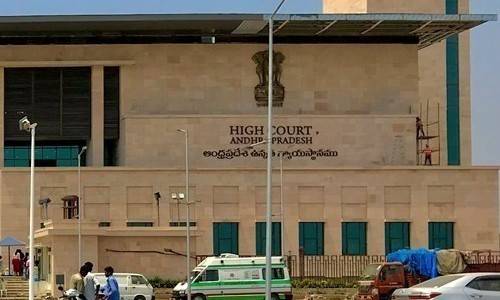
Case Title: B.Sridevi V. The State of Andhra Pradesh
Pre-arrest bail was recently awarded by the Andhra Pradesh High Court to an accused under Section 306 of the Indian Penal Code (punishment for abetment of suicide).
The Supreme Court's ruling in Geo Varghese v. State of Rajasthan (2021) was cited by Justice Subba Reddy Satti to reaffirm the fact that a mere claim of pressure or harassment without any concrete actions would not be sufficient to trigger Section 306 of the IPC.
The prosecution's case was that the deceased's widow filed a complaint, saying that her husband, the deceased, had worked as a clerk for the Primary Agriculture Cooperative Society for nine years. It was claimed that his superior officials had put pressure on her spouse to collect loans since there had been a delay in doing so. It was claimed that the dead committed suicide as a result of pressure from the accuser. The crime was reported based on the aforementioned complaint, and the petitioner is now Accused No. 3.
According to the petitioner's attorney, she was falsely accused of committing a crime. The petitioner claimed that on the purported day of the event, they and other society officials were on a trip to promote a training program that the society had planned, and as no wrongdoing had been attributed to them, there was no evidence of their complicity or incitement. She was also the CEO, and according to protocol, the President was in charge of communicating any orders to the CEO on loan repayment. She also had no direct contact with the dead, who was the Society's Secretary.
Justice Subba Reddy Satti cited Geo Varghese (supra), in which the Hon'ble Supreme Court ruled that a simple charge of harassment does not constitute an offence under Section 306 of the IPC unless it leads to the victim's suicide.
"What is required to constitute an alleged abetment of suicide under Section 306 IPC is there must be an allegation of either direct or indirect act of incitement to the commission of the offence of suicide and mere allegations of harassment of the deceased by another person would not be sufficient in itself, unless, there are allegations of such actions on the part of the accused which compelled the commission of suicide."
The Supreme Court ruled in another case, M. Mohan v. State of Tamilnadu (2011), that Section 306 contains positive conduct that encourages the dead to commit suicide.
"Merely on the allegation of harassment without there being any positive action proximate to the time of occurrence on the part of the accused which led or compelled the person to commit suicide, a conviction in terms of Section 306 of IPC is not sustainable."
The court stated that the elements of Section 306 are not prima facie made out in the current case since, according to the complaint, the petitioner did not encourage or assist in the deceased's suicide. As a result, the Criminal Petition was approved, and the petitioner was granted bail.

